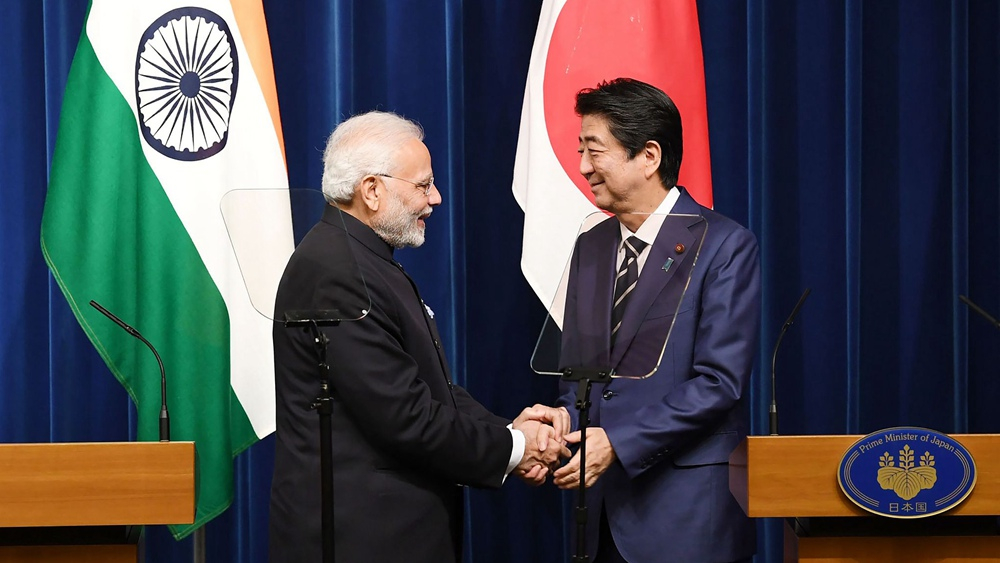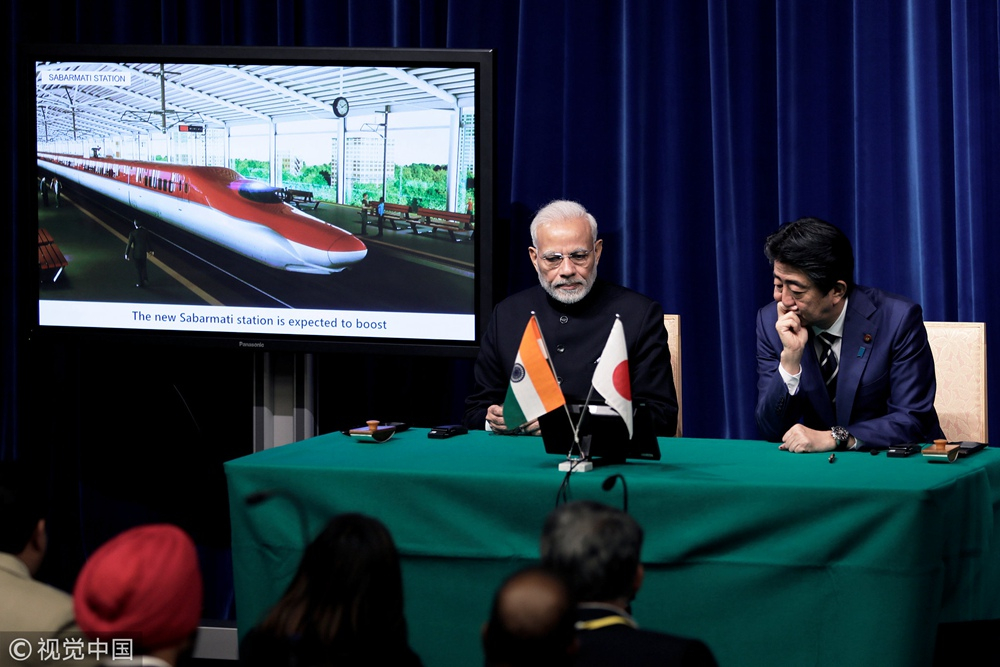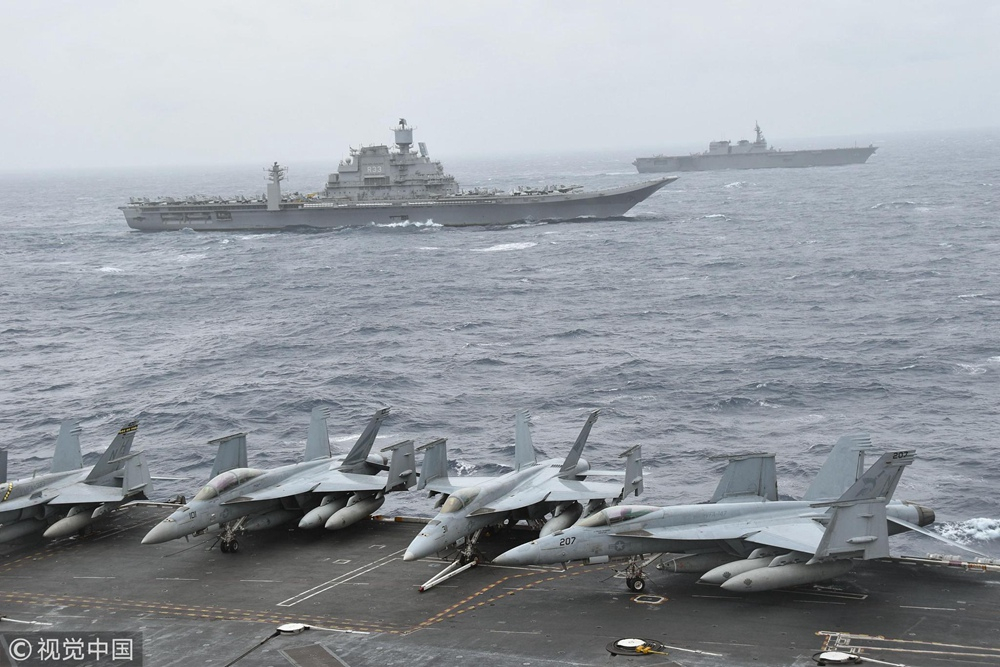
Politics
11:49, 30-Oct-2018
India, Japan seek closer economic and military ties
Updated
11:49, 02-Nov-2018
CGTN

Indian Prime Minister Narendra Modi and Japanese Prime Minister Shinzo Abe agreed to seek closer economic and military ties on Monday during the 13th India-Japan annual summit.
In a joint statement, the two leaders said they would begin regular talks between their foreign and defense ministers and committed to extending cooperation in areas ranging from agriculture and digital technology to investment in Indian rail projects and infrastructure.
Abe and Modi also said they would conclude a $75-billion bilateral currency swap agreement and welcomed an agreement to deepen cooperation between their two navies.

Indian Prime Minister Narendra Modi (L) and Japanese Prime Minister Shinzo Abe watch a video introducing a high-speed rail project during a joint news conference at Abe's official residence in Tokyo, Japan, October 29, 2018. /VCG Photo
Indian Prime Minister Narendra Modi (L) and Japanese Prime Minister Shinzo Abe watch a video introducing a high-speed rail project during a joint news conference at Abe's official residence in Tokyo, Japan, October 29, 2018. /VCG Photo
"Relations between Japan and India have the biggest potential in the world," Abe told reporters after he and Modi signed the statement. "A strong India benefits Japan and a strong Japan benefits India."
Modi responded, "I believe until and unless India and Japan have strong relations Asia can never develop."
The two leaders agreed "to expand concrete cooperation with the United States and other partners," according to the statement.
The talks in Tokyo on Monday followed separate talks on regional issues between the two men the day before at Abe's vacation home near Mount Fuji, the first time he has invited a foreign leader to his private lodge.
In 2015, Japan's Maritime Defense Force became a regular participant in an annual naval exercise, known as Malabar, that the United States and India began in 1992.

July 17, 2017: Japan's Maritime Self-Defense Force and the US as well as Indian navies take part in the Malabar joint exercises in the Bay of Bengal. /VCG Photo
July 17, 2017: Japan's Maritime Self-Defense Force and the US as well as Indian navies take part in the Malabar joint exercises in the Bay of Bengal. /VCG Photo
Delhi and Tokyo this month began talks on a military logistics pact, known as the Acquisition and Cross Servicing Agreement (ACSA). It would allow Japan to refuel and resupply its ships at Indian naval bases on the Andaman and Nicobar islands near the Malacca Straits.
Japan may also supply the Indian navy with amphibious US-2 aircraft, although the two countries have yet to conclude a deal after five years of negotiations.
As cooperation between Japan and India grows, Abe is also seeking to improve ties with China. Abe last week visited Beijing for talks with Chinese President Xi Jinping and Premier Li Keqiang.
India and Japan signed a $75-billion bilateral currency swap agreement on Monday, India said, adding that the measure was aimed at improving confidence in the foreign exchange and capital markets.
China and Japan on Friday signed a broad range of agreements including a 200-billion-yuan (about 28.78 billion US dollars) currency swap pact, amid rising trade tensions with Washington.
(Cover: Indian Prime Minister Narendra Modi, left, shakes hands with his Japanese counterpart Shinzo Abe during a joint press statement in Tokyo, Japan, October 29, 2018. /VCG Photo)
2104km
Source(s): Reuters

SITEMAP
Copyright © 2018 CGTN. Beijing ICP prepared NO.16065310-3
Copyright © 2018 CGTN. Beijing ICP prepared NO.16065310-3